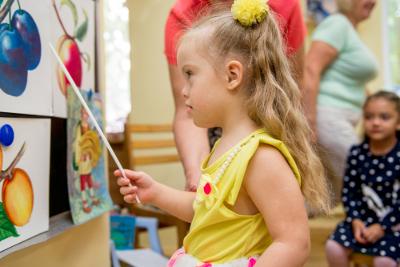Pupils in UK special schools “treated differently”

Research by an OU academic claims that there are no national progress routes for children with severe or profound intellectual disabilities following the recent withdrawal of standardised assessments.
Published in Disability & Society, the peer-reviewed research paper: Assessing progress in children with severe/profound intellectual disabilities: what are the issues? shows there are currently no national progress levels for children with severe or profound intellectual disabilities – meaning teachers have no standardized way of tracking the development of students in both academic and non-academic learning areas.
Led by Elizabeth Smith, a research student on the OU’s Doctoral in Education (EdD) in the Faculty of Wellbeing, Education and Language studies, the research found that children with intellectual disabilities at special schools in the UK are again being treated differently to children at mainstream schools since the withdrawal of standardised assessments, known as Pre-National Curriculum Performance Levels, or P-levels.
Elizabeth Smith said: “While some teachers welcome the chance to re-organise or design a new curriculum and associated assessments, many teachers are left perplexed and exasperated by the fact that they have no statutory guidelines or framework to work with and are expected to create their own.
“And if schools are creating their own assessments, how can they ensure these systems are not just viewpoints or opinions but are valid assessment frameworks grounded in theory? With each school creating their own assessments, it will also be difficult for them to know at what level a pupil joining from a different school is working at.”
Mrs Smith and her colleagues further argue that the abandonment of P-levels shows that special schools and their pupils are still viewed and treated very differently.
“This would never happen in mainstream schools, so why are special schoolteachers being left to cope with all this extra work without the time and resources to do so?” she says. “Despite governments’ policies promoting equality amongst all children and the need for inclusion of all, children in special schools are again being treated as ‘other’.”
Quarterly Review of Research
Read our Quarterly Review of Research to learn about our latest quality academic output.

Contact our news team
For all out of hours enquiries, please telephone +44 (0)7901 515891
